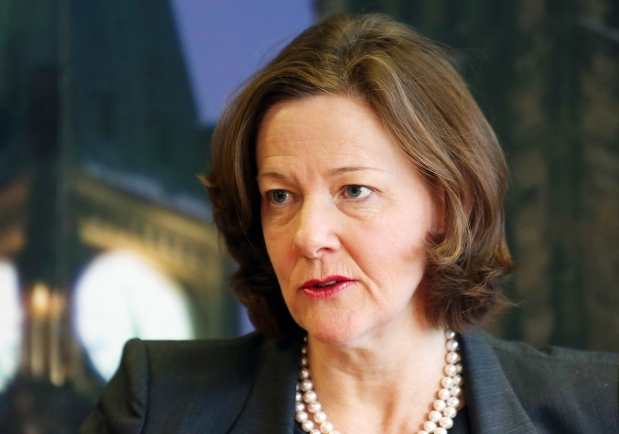WASHINGTON — Alison Redford and actor Robert Redford may be distant relatives, but the Alberta premier doesn’t think either her namesake or other Hollywood celebrities are contributing to society by opposing the oilsands and the proposed Keystone XL pipeline.
“It’s fine for people who aren’t really impacted by this stuff to talk about why it shouldn’t happen, but these aren’t the people that are out talking to the thousand guys that want jobs — or to returning veterans who want to be able to work on pipeline construction or get trained in new technologies,” she said in an interview.
“Celebrities being celebrities will never change, but at the end of the day, it is important for us to speak for the people whose lives are actually affected by these decisions.”
The premier said she believes she and the anti-pipeline Redford — the star of Hollywood movies such as The Sting and All the President’s Men — are descendants of four brothers who came to North America from Wales.
Redford said her family descended directly from one of the brothers who moved north just before the turn of the century.
“Yes, theoretically, we’re related,” she said.
The premier said she became shockingly aware the actor was actively opposed to pipeline construction about three days after she became Alberta’s premier.
The Tory leader said she was astonished to see a headline proclaiming ‘Redford opposes Gateway pipeline’ one evening when she was watching news headlines scrolling across the bottom of her television, thinking it was a reference to her.
“I said: Oh my God. . . . But of course, it was him,” she said.
This week, the actor Redford urged Americans to contact their politicians to block the controversial Keystone XL pipeline that will carry up to 830,000 barrels of oilsands product a day from Alberta to refineries on the U.S. Gulf Coast.
He noted the comment period on the project closes April 22 and Americans should discourage U.S. President Barack Obama from approving the pipeline.
“When I see raw tarsands coursing through people’s yards and across wetlands, it makes me sick,” he wrote in a blog for the Huffington Post.
“The answer seems clear, especially when we look at the graphic video footage from Arkansas: tarsands expansion rewards the oil industry while putting us all at risk of oil spills and climate change. That’s a raw deal by any calculation.”
He said the recent Exxon Pegasus pipeline spill near Mayflower, Ark., should convince Americans to reject Keystone, which he claimed will bring 10 times more oilsands bitumen into the United States.
The premier, however, rejected the argument.
“This pipeline is not 10 times worse. This pipeline is 10 times better,” she said.
“This is new infrastructure that’s going to allow for product in the United States as well as in Canada to get to where it needs to go.”
She suggested actors rely on fossil fuels to travel around the globe, but denounce them publicly.
“They are using non-renewable resources to do it,” she said. “I think it is important to keep it in perspective.”

Canada’s ambassador to the United States predicts the pipeline will win approval if the decision is based on science rather than what he calls “noise” — the hype from environmental groups and celebrities.
“Celebrities always get more media than scientists,” Gary Doer said this week in an interview.
The arrest of actress Daryl Hannah during a Keystone protest at the White House in 2011 garnered dramatically more media attention than a press conference by a union for construction workers advocating for pipeline jobs, he recalled.
“It is part of the dynamics here,” Doer said. “Daryl Hannah getting locked up at the White House will get more coverage in Canada and the United States than the building trades pledge to hire a number of helmets.”

Comments